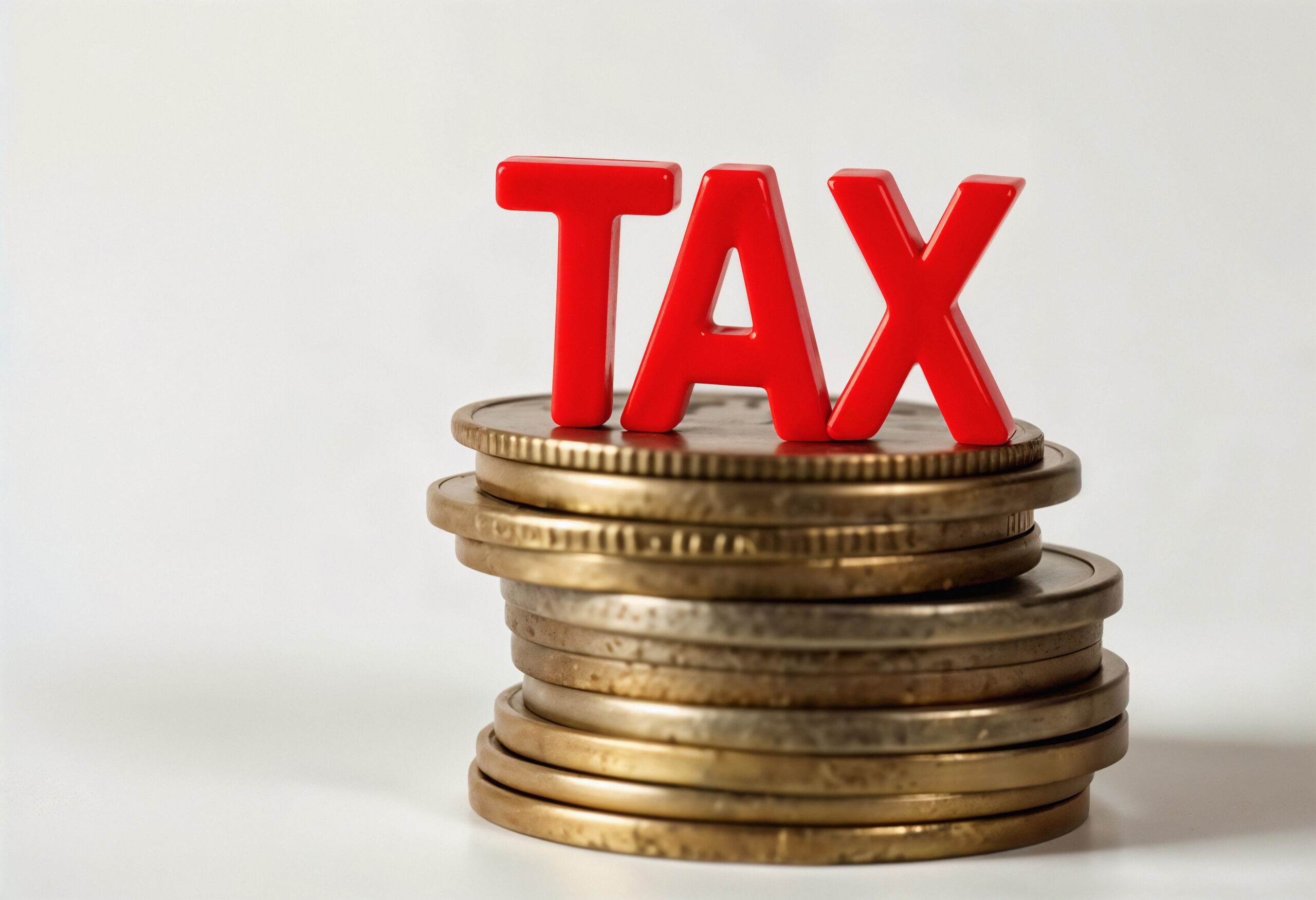
VAT Consultancy Services in UAE
At Precision AI Solutions, we bring innovation to tax compliance through intelligent, AI-powered solutions tailored for UAE businesses. Our VAT and Corporate Tax services go beyond traditional methods by leveraging automation and smart algorithms to ensure accurate calculations, timely submissions, and full regulatory compliance.
Our AI tools monitor transaction data in real time, flag potential errors, and generate detailed reports—minimizing human error and reducing the risk of penalties. With automated alerts, predictive tax estimates, and seamless integration with your accounting systems, we simplify complex tax processes and help you stay ahead of ever-evolving FTA requirements.
Whether you’re registering for Corporate Tax, preparing VAT filings, or managing tax audits, our tech-driven approach ensures your business is always compliant, efficient, and audit-ready. At Precision AI Solutions, we don’t just handle tax—we turn it into a strategic advantage, combining deep regulatory knowledge with the power of AI to support smarter business decisions.
VAT Health Check in UAE
The tax team at Precision AI Solutions are well versed with the UAE VAT law provisions and experienced in all sorts of industries with range of Large and MSME companies. This experience supports us to conduct VAT Health Check in UAE where all areas will be reviewed, and additional focus will be given to areas where there are higher chances of FTA will lay hands on. We shall suggest necessary corrective action to rectify any errors and streamline the documentation process, thereby prepare the client in case of any Tax audits.
We provide VAT Health Check in Dubai, Abu Dhabi, and all other Emirates of UAE.
What is a VAT Health Check?
A VAT Health Check is an independent review by an experiences VAT consultant to identify the effectiveness of the VAT procedures, documentation, and control practices. A VAT Health Check includes review of VAT returns, transactional analysis of the existing transaction scenarios of the company, maintenance of tax records, documentation formats (invoices & Tax credit notes), VAT compliance of the invoice received from the supplier, and key compliance areas of high risk.
VAT Health Check will be conducted in line with FTA audit perspective based on industry specifics, key auditable areas will be listed, and high focus will be placed on such areas.

Why is VAT Health Check necessary in UAE?
Benefits of Our VAT Consultants
Identify Non Compliance Causes
Rectify Areas in Need
Optimize Costs
Meet Compliance Obligations
Effortless VAT Return Filing with Precision AI Solutions
VAT return filing in the UAE can be complex and time-consuming. Our experienced VAT consultants ensure your submissions are accurate and filed on time, eliminating hassle and risk.
Avoid VAT Penalties with Timely Filing & Payment
Timely VAT filing is crucial to avoid penalties. Here are the consequences of delays:
- Late VAT Return Filing Penalties:
First-time Delay: AED 1,000
Repeated within 24 months: AED 2,000 - Late VAT Payment Penalties:
Next Day After Deadline: Immediate 2% on unpaid tax
Monthly Penalty: 4% each month until full payment
Extended Delinquency: Up to 300% penalty if unpaid beyond one calendar month
Why Choose Precision AI Solutions for VAT Return Filing?
- Total Compliance: Ensuring full adherence to VAT laws.
- Legal Expertise: Handling all legalities for you.
- Guidance & Support: Expert consultant advice.
- Effortless Filing: We manage the entire process.
- Penalty Solutions: Liaising with Tax Authority if penalties arise.
Embrace Error-Free VAT Filing
Our VAT experts simplify compliance and filing, delivering error-free submissions and peace of mind.
VAT Transaction Analysis In UAE

VAT Compliance in UAE
A quick compliance review ensures focus on key VAT areas and enables immediate corrective actions.
Precision AI Solutions offers expert VAT compliance checks. Our consultants focus on areas prone to frequent errors based on industry insights and recommend effective corrective measures.
VAT Impact Analysis in UAE
Non-compliance with VAT regulations can result in significant penalties. Corrective actions, such as filing a Voluntary Disclosure (VD), also attract administrative penalties under Cabinet Decision No. 49 of 2021.
Any hint of non-compliance should trigger an immediate impact analysis to assess potential effects on your company’s cash flow.

VAT Return Review and Refund Application in UAE
What is a VAT Return in UAE?
A VAT return is an official document to be completed by the Taxable Person and submitted to the Federal Tax Authority (“FTA”) at regular intervals detailing any output tax due and input tax recoverable and including any other information that is required to be provided.
All VAT Returns should be submitted online using the FTA portal. The return can be submitted by the Taxable Person, or another person who has the right to do so on the Taxable Person’s behalf (for example, a Tax Agent or a Legal Representative).
The VAT Return must be received by the FTA no later than the 28th day following the end of the Tax Period concerned or by such other date as directed by the FTA. Where a payment is due to the FTA, it must be received by the FTA by the same deadline.
If there is no business transaction for the Tax Period, you are required to submit a “nil” VAT Return by the respective due date.
What is the benefit of conducting a review of Historical (Past) Returns?
Tax returns filed by the registrant is the basis of any scrutiny or evaluation for FTA. Review of returns already filed (historical returns) will identify any anomalies and subsequent corrective actions required to rectify the errors or omissions. Anomalies can include reporting of standard-rated sales as zero-rated sales, Service RCM not recorded accurately, Adjustments to RCM goods and services not made properly, the Wrong claim of input tax, RCM reversals not taken accurately.
Corrective actions can include a voluntary disclosure submission or correction in the subsequent return. Review of past returns will ensure that all returns filed are as per UAE VAT rules and chances of any penalty are nil.
What is a VAT Refund Application?
Every Taxable Person is required to file a VAT return summarizing the VAT due to the FTA for the tax period. When the input tax is greater than output tax on a VAT return, the Taxable Person is able to request a VAT refund in UAE after submission of the VAT return or at any later time when there is a credit owed to them.
Where the Taxable Person makes a claim for a refund of excess refundable tax, the FTA will within 20 business days of an application being submitted, review the application and notify the Taxable Person of its decision to accept or reject the refund claim. The FTA may notify the applicant that it requires a longer period than (20) business days to consider the application where appropriate.
Tax authorities scrutinize the refund application with strict criteria. The refund application has to be submitted in correct format as prescribed by FTA.
The tax professionals at Precision AI Solutions shall assist you to file VAT refund applications on a timely basis in correct format, suggest corrective action to rectify any discrepancy which can expedite the refund process and respond to FTA queries related to the refund application. Timely and accurate refund application with sufficient document submission will result in timely refund process thereby causing positive cash flow and smooth business operations.
VAT Refund for UAE Nationals Building New Residences
Precision AI Solutions has a dedicated desk of professionals with Arabic proficiency who can assist in refund application of UAE Nationals for claiming input tax pertaining to New Residence constructed in UAE.
The tax team at Precision AI Solutions will ensure that all the necessary documents are arranged and compiled to submit the refund application with FTA or the Verification body, to get the refund application approved on timely basis.
Who is eligible for VAT Refund in UAE?
Subject to Article 66 of the Executive Regulation, where a UAE National who is a national of the UAE and holds a Family Book, owns or acquires land in the UAE on which he/she builds or commissions the construction of his / her own residence, he/she is entitled to request a special refund from the FTA for the VAT incurred on certain expenses related to the construction of a new residence.
What is the Process?
A New Residence VAT Refund Request should be submitted to the FTA on the FTA e-Services portal.
The application will be reviewed by the FTA to check the eligibility of the applicant to make the claim and if the initial assessment is successful a reference number will be provided if additional documents/information are requested or the application may be rejected.
If the initial assessment is successful, additional documentation will be requested, either by the FTA or by a Verification Body (appointed and authorized by the FTA).
Once the application is reviewed by the Verification Body, it will inform the FTA of the outcomes of verification. Following this, the FTA will notify the applicant if the refund claim is approved, amended or rejected.
VAT Refund for EXPO 2020 participants
Who is eligible to claim Refund?
Offices of the Official Participants of Expo 2020 Dubai are eligible to recover VAT on certain Goods and Services which were imported or acquired.
Where the Official Participant is not registered for UAE VAT, the refund applications can be made through the Bureau (Bureau Expo 2020 Dubai established by virtue of Decree No. 30 of 2014 issued by the Ruler of Dubai) by submitting a special refund application to the Bureau.
Where the Official Participant is registered for VAT, it may reclaim VAT via its UAE VAT return.

What VAT is Reclaimable?
Offices of the Official Participants are able to reclaim VAT incurred on the import and acquisition of the following five categories of Goods or Services without the need to use them for making taxable supplies:
- VAT incurred in direct connection with the construction, installation, alteration, decoration and dismantlement of their exhibition space.
- VAT incurred in direct connection with the works and activities of organizing and operating the Official Participant’s exhibition space and any presentations and events within the Expo 2020 site.
- VAT incurred relating to the actual operations of the Official Participant, provided that the value of each Good or Service for which the Office of the Official Participant makes a claim is not less than AED 200.
- VAT incurred with all operations, services and activities provided for the purpose of participation in Expo 2020 Dubai, whether located within or outside the boundaries of the Expo 2020 Dubai site.
- VAT incurred on import of Goods for personal use of the Official Participant’s Section Commissioner-General, Section Staff and the Beneficiaries.
What VAT is Reclaimable?
Offices of the Official Participants are able to reclaim VAT incurred on the import and acquisition of the following five categories of Goods or Services without the need to use them for making taxable supplies:
- VAT incurred in direct connection with the construction, installation, alteration, decoration and dismantlement of their exhibition space.
- VAT incurred in direct connection with the works and activities of organizing and operating the Official Participant’s exhibition space and any presentations and events within the Expo 2020 site.
- VAT incurred relating to the actual operations of the Official Participant, provided that the value of each Good or Service for which the Office of the Official Participant makes a claim is not less than AED 200.
- VAT incurred with all operations, services and activities provided for the purpose of participation in Expo 2020 Dubai, whether located within or outside the boundaries of the Expo 2020 Dubai site.
- VAT incurred on import of Goods for personal use of the Official Participant’s Section Commissioner-General, Section Staff and the Beneficiaries.

VAT Registration Formalities in UAE
VAT is a transaction-based tax which is imposed on most supplies of goods and services. However, the obligation to charge VAT only extends to persons who are registered for VAT or are required to register for VAT in UAE. These persons are known as “taxable persons”. A taxable person who is registered for VAT receives a tax registration number (‘TRN’) and is referred to as a “registrant”.
Who can apply for VAT Registration voluntarily?
- At the end of any month, the total value of the person’s taxable supplies and imports, or their expenses which were subject to VAT, in the previous 12 months exceeds the Voluntary Registration Threshold of AED 187,500; or
- The total value of the person’s taxable supplies and imports, or their expenses which are subject to VAT, in the next 30 days is expected to exceed the Voluntary Registration Threshold of AED 187,500.


VAT Deregistration in UAE
A taxable person must notify the FTA of the requirement to deregister within 20 business days from the end of the month in which any of the following occurs:
- The taxable person ceases making taxable supplies; or
- The value of the taxable person’s taxable supplies in the preceding 2 calendar months is less than the Voluntary Registration Threshold i.e. AED 187,500.
In case of failure by the registrant to submit a deregistration application within the stipulated time, applicable administrative penalty shall be AED 1,000 monthly penalty up to a maximum of AED 10,000.
Precision AI Solutions has a specialized team that can assist in timely deregistration by guiding through the requisite process and relevant documentation required.
Corporate Tax in UAE: An overview
The Corporate Tax of UAE will remain the lowest tax rate in the world, and it reduces the compliance burden on businesses. The introduction of Corporate Tax will increase the revenue of the UAE which is essential to stand competitive in the global business and investment environment. This would bring more financial discipline in the corporate culture which would in turn result in the proper maintenance of record keeping. The proposal of introducing Corporate Tax stems from the UAE’s commitment to meet international standards of tax transparency while protecting start-ups and small businesses in the UAE.
Corporate Tax in UAE
Effective Date The UAE will be implementing corporate tax for financial years beginning on or after June 1, 2023.
What are the aims of the UAE on introducing taxes on corporate income?
- Increasing the country’s status as a major commercial and investment centre.
- To meet the strategic goals by speeding up the transformation and developmental programs.
- Addressing international tax transparency standards.
- To put unhealthy tax methods out of the system.
- To diversify its revenue in non-oil industry.
A virtual Event on Latest Updates on Corporate Tax in UAE
The following are the Corporate Tax rates:
All multinational companies covered by OECD Base Erosion and Profit-Sharing rules that fall under Pillar 2 of the BEPS 2.0 framework, i.e., have combined worldwide revenues over AED 3.15 billion, will be eligible for a range of rates.
Scope of Corporate Tax in UAE
The United Arab Emirate introduced a federal tax structure applicable to all business operation and commercial activity carrying out throughout the emirates. Let’s have a look at the scope of corporate taxation given below. CT will apply to:
- Businesses and individuals conducting business activities under a commercial licence in the UAE.
- Free zone businesses (Freezone companies shall receive the benefit of the CT incentives if they comply with all regulatory requirements and are not conducting business in the UAE’s mainland).
- Foreign companies and individuals only if their business is effectively managed and controlled in the UAE.
- Banking operations.
- Businesses that encompass construction, development, real estate management, agency, and brokerage activities.
Exempt Person
Government entities.
Government-controlled entities specified in a cabinet decision.
Extractive business.
Non extractive natural resource Business.
- Qualifying public benefit entities.
- Public and private pension and social security funds.
- Qualifying investment funds.
- Wholly owned and controlled UAE subsidiaries of a Govt entity, a govt controlled entity, a qualifying investment fund or a public or private pension or social security fund.
- CT won’t apply to dividends or capital gains that a UAE business makes from its qualifying shareholdings.
- Qualifying intra-group transactions and reorganizations will not be subject to CT, provided the necessary conditions are met.
Additionally, CT will not apply to:
- Individual earnings salary and other employment income, whether received from the public or the private sector.
- Interest and other income earned from bank deposits or saving schemes by an individual.
- Foreign investor’s income made from dividends, capital gains, interest, royalties, and other investment returns.
- Investment in real estate done by individuals in their personal capacity.
- Dividends, capital gains, and other income received by people through their own ownership of shares or other securities.
Influence of Corporate Tax on UAE Free zones
According to the rules of each Free Zone, the UAE intends to uphold its commitment to businesses registered in Free Zones that do not conduct business with the mainland and that will benefit from corporate tax benefits. All free zones are obliged to submit an annual CIT return.
The following requirements must be met by a free zone person in order to qualify as one:
- Keep the UAE’s substance up to par
- Derive ‘Qualifying Income’
- Not chosen to be liable to Corporate Tax at the Standard Rates; and
- Follow the Corporation Tax Law’s transfer pricing obligations.
A Qualified Free Zone Person may be required to comply with extra requirements set forth by the Minister. The usual rates of corporate tax will apply starting with the start of the Tax Period in which the Qualified Free Zone Person fails to satisfy any of the qualifications or elects to be subject to the regular corporate tax regime.


Corporate Tax on MNCs
Mergers & Acquisition sector


What impact does corporate tax have on Foreign Direct Investment in the UAE?
The adoption of a corporate tax is only one instance of how quickly the UAE is developing and expanding. The goal of the administration is to rebuild the country’s economy by transitioning it off of its reliance on oil and gas, and it is making efforts to position itself as a digital and technical powerhouse.
The UAE’s intent to alter its corporate structure and follow international regulations can be seen in the first massive revamp of labour law, the shift of the workweek from Sunday to Thursday to Monday to Friday, and the elimination of the requirement that a UAE national control at least 51 percent of a UAE enterprise. The UAE will keep enticing highly skilled professionals since employment income is to remain tax-free, and no tax is applied on income or profits derived from personal holdings. Yet, these changes have increased the expense of living and doing business.
Registering, Filing and Paying Corporate Tax
The UAE’s intent to alter its corporate structure and follow international regulations can be seen in the first massive revamp of labour law, the shift of the workweek from Sunday to Thursday to Monday to Friday, and the elimination of the requirement that a UAE national control at least 51 percent of a UAE enterprise. The UAE will keep enticing highly skilled professionals since employment income is to remain tax-free, and no tax is applied on income or profits derived from personal holdings. Yet, these changes have increased the expense of living and doing business.

Key takeaways from the UAE Corporate Tax
- Non-residents are required to pay tax on income earned in the UAE as well as taxable income from PE.
- The business’s adjusted accounting net profit will be subject to corporate tax.
- Businesses operating in free zones are still eligible for corporation tax benefits as long as they meet all criteria.
- The extraction of natural resources will be excluded from corporate tax, as it will remain subject to emirate level corporate taxation and the branches of foreign banks.
- Domestic, cross-border payments and specified transactions are subject to 0% withholding tax (WHT).
- If certain requirements are met, capital gains and dividends are free from corporate tax.
- Companies based in the UAE may establish a tax group provided certain requirements are completed.
- If certain requirements are met, the UAE CT framework permits the transfer of tax losses from one group company to another group company having profits.
- For eligible intra-group transactions and restructuring, there is group relief.
- The UAE CT scheme permits a credit for taxes paid in another country against the UAE CT responsibility on income with a foreign source. Generous loss transfer and utilization rules will be available to businesses.
- Transfer pricing as per the OECD guidelines is applicable.
- Accounting profit, as per the international accounting standards. But relaxation for certain taxpayers.
- An alternative mechanism for determining taxable income simplified financial and tax reporting obligations for certain taxpayers (e.g., Start-ups and small businesses).

The impact of Corporate Tax on UAE businesses
The tax and compliance costs of the majority of UAE firms are anticipated to significantly change with the implementation of corporate tax in the UAE. The new tax system must be complied with by entities. This calls for a precise assessment of the tax ramifications and necessary adjustments to the corporate structure, operational model(s), finance/tax operations, reporting systems, legal agreements, and transfer pricing rules.
At Precision AI Solutions our specialist tax team will offer the necessary support and respond to your inquiries regarding corporate tax.
Corporate Tax Services in UAE
The United Arab Emirates (UAE) has long been known as a tax-free business location. This is bound to change with the declaration by the Ministry of Finance (MOF) that the UAE will introduce a federal corporate tax (CT) for financial years beginning on or after June 1, 2023.
The UAE Corporate Tax framework was created to include best practices from throughout the world while reducing the regulatory impact on businesses. CT will be levied on profits recorded in financial accounts prepared in conformity with international accounting standards by UAE enterprises, with minor exclusions and modifications.

Corporate Tax Services in UAE
This proposed new UAE corporate tax structure will play a vital role in the UAE’s quickly evolving business environment. Businesses in the UAE will need to evaluate the impact of corporate tax on their operations and ensure that they are in compliance with the corporate tax standards. Also, businesses should begin assessing the impact of corporate tax on their activities on a tactical level. Precision AI Solutions as a tax consultant will assist you in navigating this new terrain and facilitate a smoother transition to the corporate tax regime for your business.
Read More about >> Corporate Tax Advisory in UAE
It can be challenging and time-consuming to operate a business and keep up with the pace of evolving tax compliance that influences corporate operations. As a result, acquiring tax guidance from professionals in the industry may be advantageous.
Read More about >> Corporate Tax Compliance
A business’s position and needs can be assessed by developing a tax and compliance strategy. Precision AI Solutions is a well-known tax consultant in UAE with a team of seasoned experts that are well-versed in offering tax and compliance services in the UAE. Understanding the benefits of the evolving tax system, the UAE has revamped its tax framework to ensure it even more desirable to international investors and corporations.

